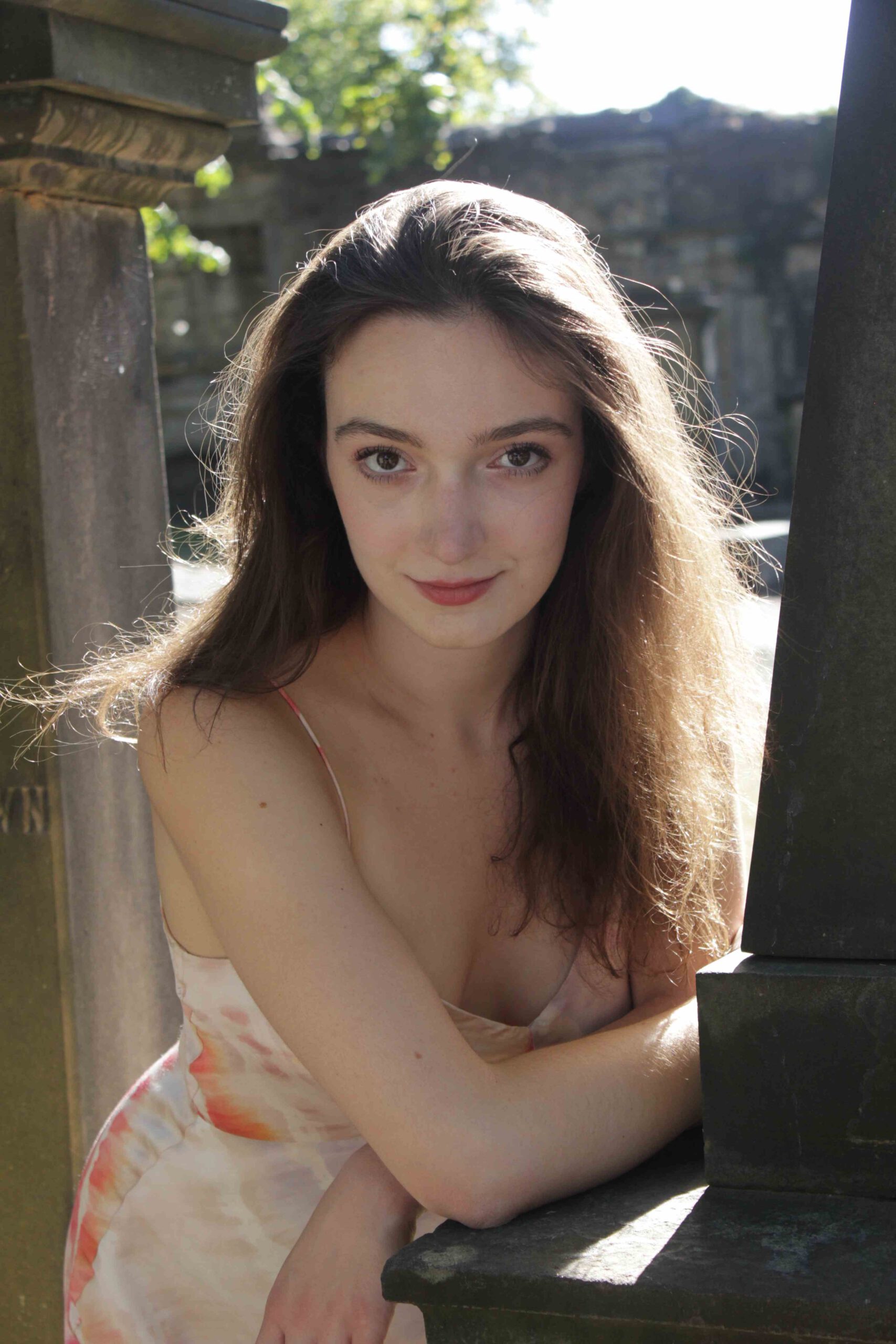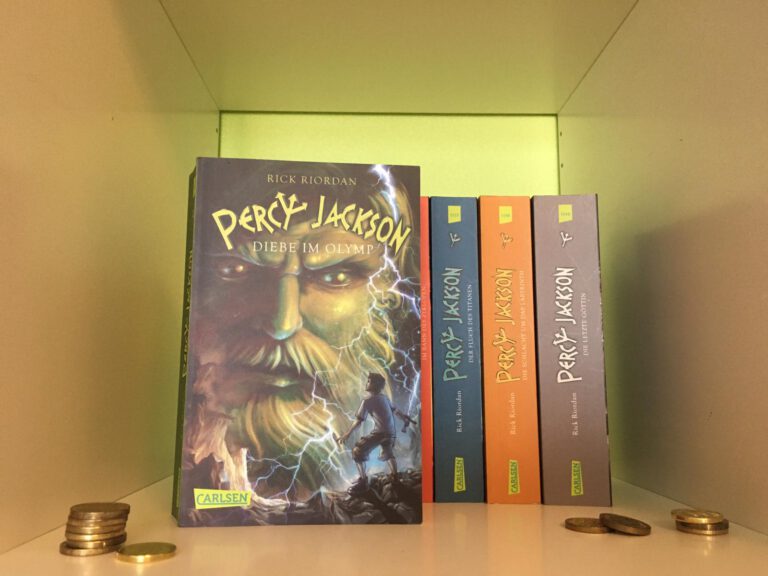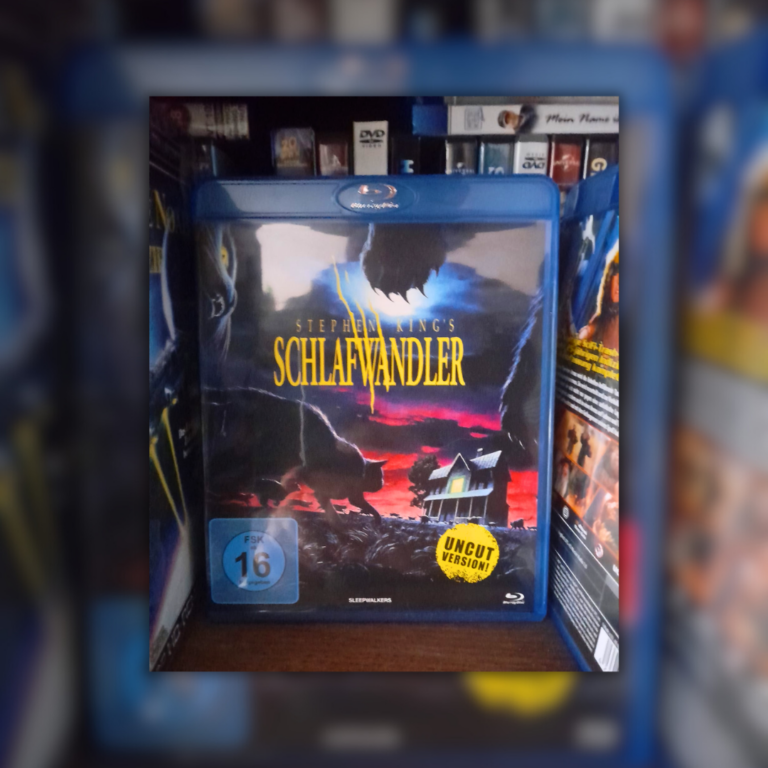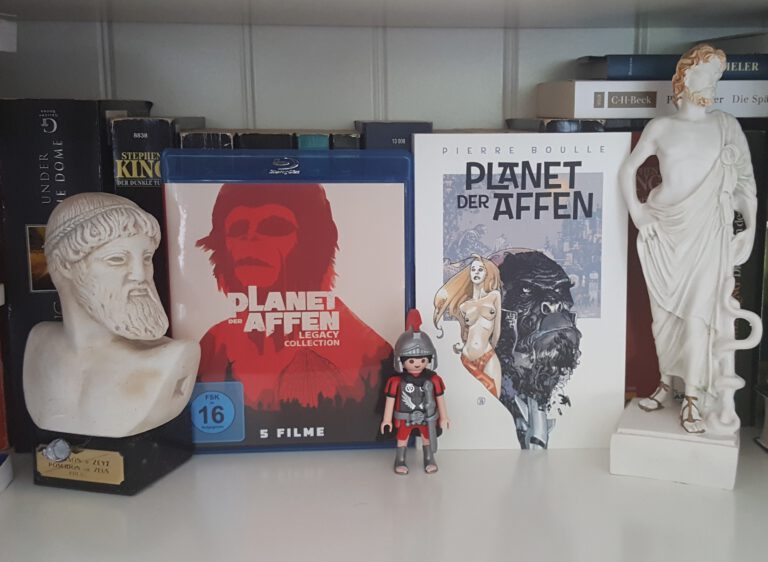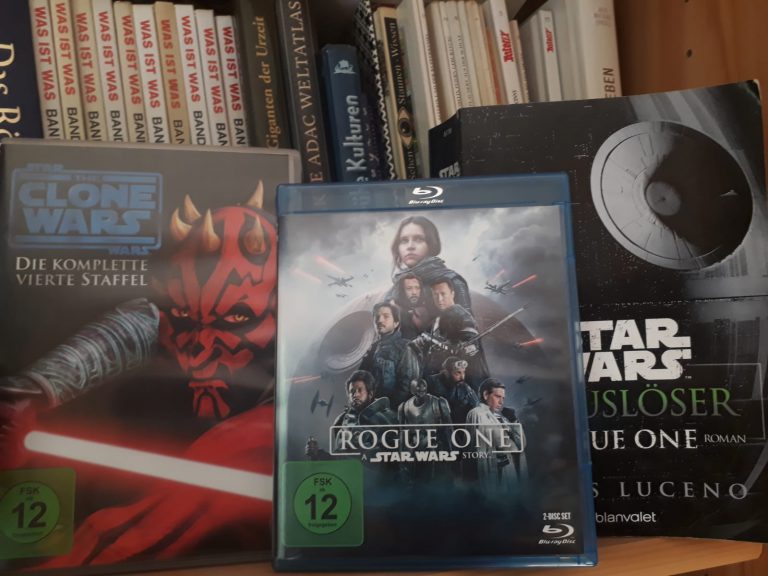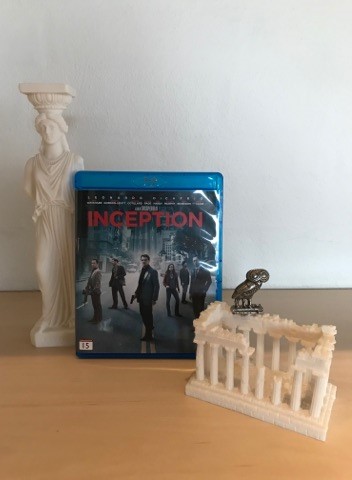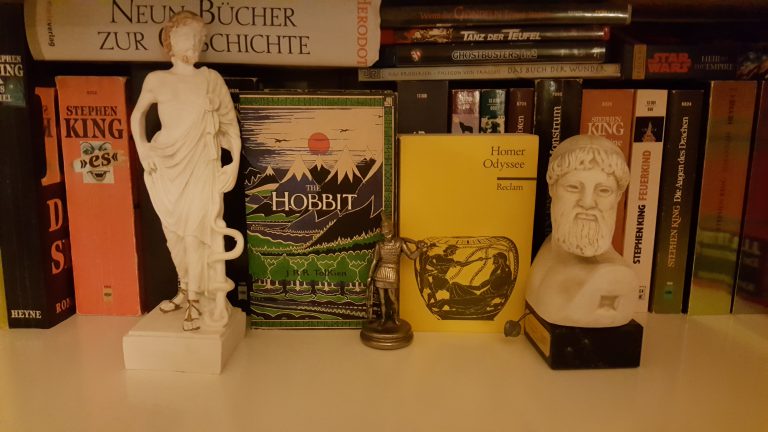Gothic & History: An interview with actress Emily Louise Knutsson
Introduction
Emily Louise Knutsson is an American-Swedish actress who grew up in the suburbs of New York. Today she is living in London and Athens after having studied History at the University of Edinburgh in Scotland.
Watching Emily being interviewed by Scotish film producer Lawrie Brewster in January 2021, I realised that she would be a perfect candidate for our „Women in Horror“ interview series. Therefore, I’m more than happy to present today Emily Louise Knutsson’s thoughts on history, gothic, acting and literature.
You’ll find further information on Emily Louise Knutsson and her work on YouTube and Instagram.
Interview with Emily Louise Knutsson
Emily, thank you very much for visiting us and giving us some insights into your work!
Hi, Michael! It’s wonderful to be here. I was delighted to receive your invitation.
Early influences
As a child your mother took you to several museums where paintings, statues etc. stimulated your imagination. Would you say that this was the beginning of your love for history?
I would actually say that growing up and visiting museums, especially the Metropolitan Museum of Art, was what pushed me in the direction of storytelling, and in particular, creative writing. I used to create backstories for the people in portraits, and when I was eight, I remember writing a whole book series based around a princess based off of the Egyptian exhibit at the Met. Yet, my writing was always tied to both my love of history and my love of performing, as I always wrote stories I could see myself acting out either on stage or on screen. I was extremely lucky to grow up in such close proximity to amazing museums, and I’ll always be grateful to my mother for taking me to visit them and encouraging my creative endeavours.
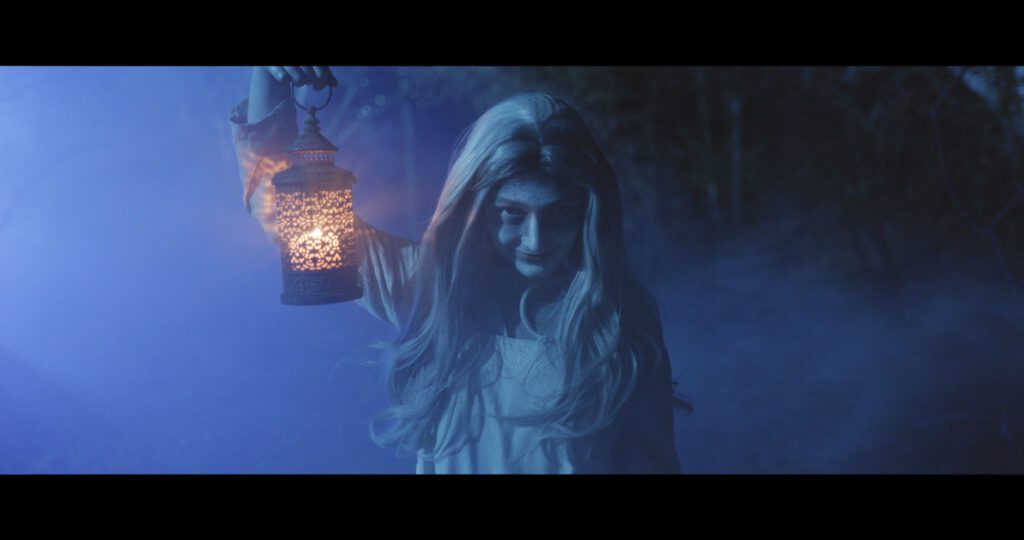
Emily’s interest in history
In Germany we think a lot nowadays about teaching history in elementary schools and high schools in a way that children and young adults gain a “historical awareness” rather than just memorising dates as it was done in the old days. How was it in your case? Did you have teachers in school who encouraged your interest in history?
Growing up, I always loved the academic side of school, but it wasn’t until highschool that I realised that I wanted to study history at the university level. I had always been a huge reader, so naturally English had been my favourite class, but in the summer before 10th grade, I had the opportunity to travel to Paris and that was where I fell in love with learning about the French Revolution. Then, that fall, I took A.P. European History, a highly competitive advanced placement course that focused on post medieval Europe, and I remember absolutely loving the increased level of difficulty and thriving. I ended up receiving a perfect score on the eventual end of year exam, something only about 4% of the country did that year, and that mark paved the way for me to study at the University of Edinburgh.
However, it wasn’t until I began studying at university that I really understood the complex nature of historical study and the importance of understanding the complexities of studying both primary sources and secondary scholarship. I can really credit Dr. Bill Aird, a professor I had in both my third and fourth years at university, and his “Medieval Bestiary” class that focused on animals in the middle ages. There, I remember being in awe of the complexities of the sources he showed us, as well as being overjoyed when he allowed us to be utterly creative in completing our assessed work.
Emily’s relation to Edinburgh and London
Since you have both the American and the Swedish citizenship you already knew a lot about Europe before you started to study in Edinburgh. In the United States most cities are only a few hundred years old. In Europe some cities like Athens or Rome existed already more than 2.000 years ago. You decided to study in Scotland and now – according to your Instagram profile – you are based in London and Athens. Are the numerous relics of older times something you appreciate regarding Europe?
One of the reasons I selected Edinburgh to study was the incredibly beautiful and historical architecture, I mean, have you seen the Royal Mile! Or Dean Village? Or my personal favourite, Duddingston’s Kirk? Studying there was truly like living inside the pages of a storybook. Now that I’m in London, I’ve also come to appreciate the intermixing of new and old, and I really enjoy the juxtaposition between the two during my walk to work in Shoreditch, where I’m currently performing in immersive theatre.
A dissertation on medieval aesthetics in (Gothic) film
You wrote your dissertation on medieval aesthetics in (Gothic) film. Would you like to summarize what this study was about?
Actually, while I began in film during my research, I eventually settled on focusing on late mediaeval Arthurian literature. I wanted to really give history one last final hurrah before moving full time into acting, so I decided to use fully medieval primary sources. My dissertation focused on masculine and feminine forms of mediaeval magic in the characters of Merlin and Morgan, as well as how it related to the political chaos of the late fifteenth century.
From movies to literature
Let’s move from movies to literature. I know that you like Mary Shelley, Bram Stoker, and Daphne du Maurier. Are there any recommendations regarding literature?
Hmmm, that’s always a tough but awesome question. Among favourite authors are Shelley, Stoker and du Maurier, but I’d also include Sally Rooney, George R. R. Martin, Jane Austen, and the Bronte sisters on that list. I’d probably say my all time favourite book is Donna Tartt’s “The Secret History”, which incidentally, if it was ever made into a movie, I would love to play Camilla.
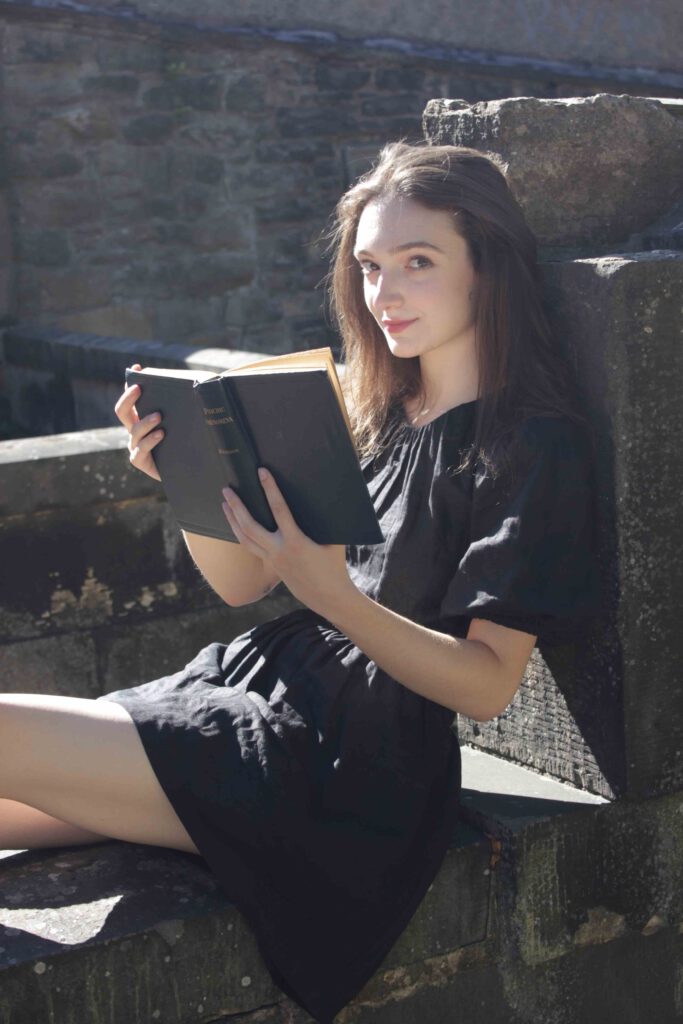
Combining Gothic, academic and performance & history and literature with acting
You told Lawrie Brewster that you are trying to combine Gothic, academic and performance. You also say that you would like to combine history and literature with acting. Could you tell our readers a little more about this most interesting point?
I would definitely say that, for me, all creative disciplines sort of meld together because, at the heart of all of them is storytelling. I’m a dancer, writer, historian, and singer as well as an actress, and I would never be able to give up any of those disciplines because they are so intricately interwoven together. Ideally, in the near future, I’d love to pen a project that really interweaves all of those themes and put it onscreen or on stage; perhaps a retelling of a Greek myth or a medieval period drama with a fantastical twist.
Evil queens, femme fatales and ancient women
Regarding your career as an actress, you are particularly interested in “evil” queens, femme fatales etc. You mentioned in this context in other interviews characters like Lady Macbeth or Anne Boyle. Since our readers are mostly coming from the field of ancient history: Are there any women from the ancient world you would like to perform in movies or theatre plays?
Definitely Persephone and perhaps Medusa.
Being a historian and an actress at the same time
As a historian you would probably do some research regarding a character you are supposed to play. Of course, historic topics have sometimes to be adopted a little to our modern times. But what if you get a role as – let’s say Marie Antoinette – and you realise that her characterisation in the movie is totally rubbish? Would this be difficult for you?
Hmmm, I used to get really upset at historical inaccuracies in television series, but the more I studied history, the more I realised that history is entirely dependent on the narrator’s perspective. I suppose I would perhaps be a little frustrated at a one-dimensional character, but I actually think it would be fun to play a totally different version of Marie Antoinette, as long as the writer had good reason to take her in a different direction. For example, Marie Antoinette had a fake Austrian village built at Versailles…but why? Furthermore, history has also always reflected the era in which it was retold, so I always welcome modern adaptations so long as the story is compelling.
Gothic and Greece
With my final question I would like to come to a topic that is very important to me: Greece. I noticed already some time ago that there a quite a lot of pictures from Greece on your Instagram account. And now you are even based in Athens. What does Greece mean to you? And is there from your point of view a connection between Greece and Gothic? Greece was obviously a strong influence on writers as Mary Shelley and Lord Byron.
I absolutely love being in Greece. My mom lives there, as well as the Aegean cats and our spaniel that she’s rescued. To me, Greece is actually the antithesis of Gothic, which is why I love to counterbalance living in London with spending time in Athens. Greece is full of light and warmth and sun, and was the epicentre of the classical knowledge that illuminated the ancient world. On the complete opposite end of the spectrum is the U.K., which to me is dark and mysterious, and perhaps the best place on earth to study and create creative material.
Thank you!
Emily, thank you for this great interview! I cannot wait to see you in Ghost Crew / Linger which should be published soon!
Thank you so much! It was wonderful being here and I’m so grateful you wanted to do this interview with me.
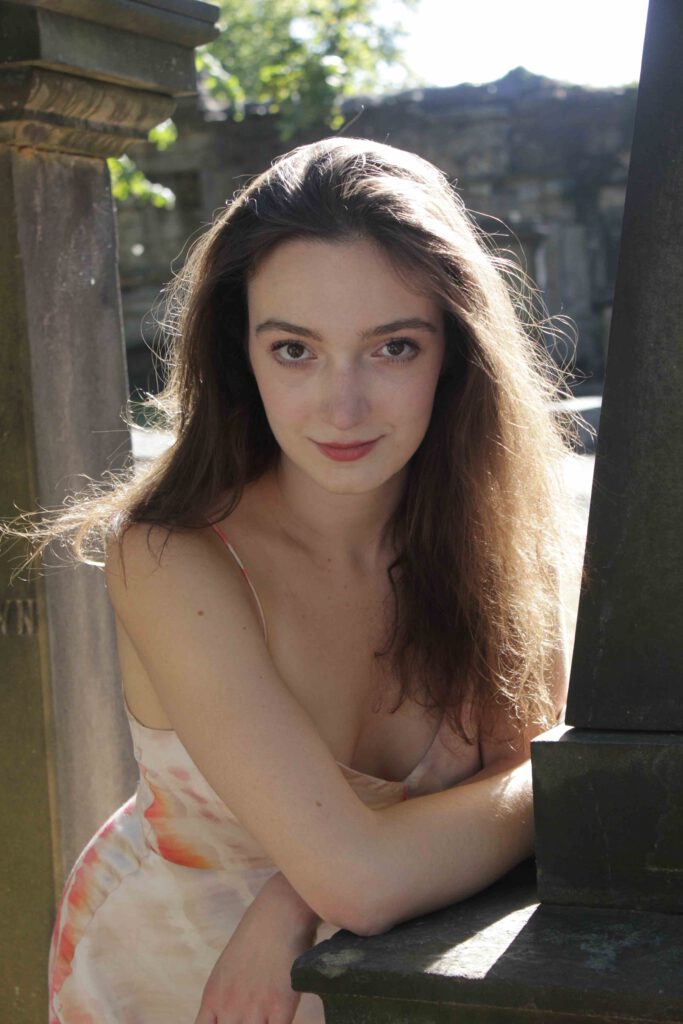
- Iron Widow und die Rezeption chinesischer Geschichte und Kultur - 31. Januar 2026
- Vita Michael Kleu - 7. Januar 2026
- Publikationen - 7. Januar 2026
